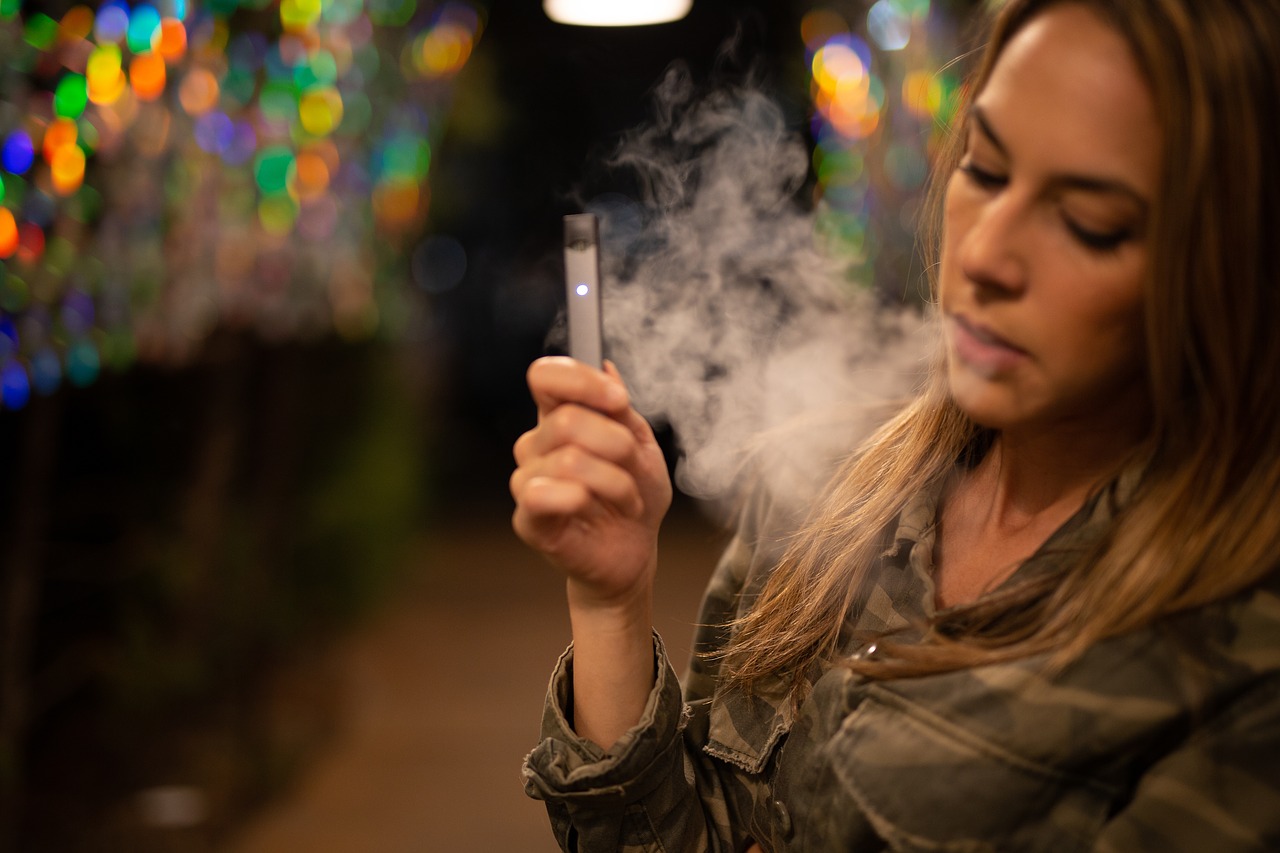Juul has recently come under fire from the Federal Trade Commission (FTC) after claims that they have been marketing their product inappropriately.
This is by no means a new problem, as Juul has been defending its marketing practices since their debut campaign, “Vaporized,” launched in 2015. The colorful advertisements feature bright colors and youthful-looking models, reading, “Buy Juul” and “Buy Juul Pods.”
What seems to be a marginally standard marketing plan was supplemented by the use of social media to reach a wide array of consumers. The additional hiring of influencers and the creation of unique hashtags only further solidified Juul’s place, leading it to taking over more than three-fourths of the electronic cigarette market.
Following its 2015 campaign, Juul’s marketing focus began to steer more toward romance, relaxation and identity. In 2016, Juul ads featured young couples or individuals using the device as a means for relaxation. Katy Perry was seen holding a Juul at the Golden Globes the same year, reaching an infinitely larger portion of the market than before.
The most noticeable aspect of these advertisements was the lack of adult smokers in them. Juul’s website states that the company’s mission is to “improve the lives of the world’s one billion adult smokers by eliminating cigarettes.” Additionally, a Juul spokesperson answered on behalf of the company, stating, “we are ensuring that this campaign is targeted at adult smokers age 35 and up.”
Juul continued to endorse social media influencers in an effort to market and sell their product. Christina Zayas, an influencer who was approached by Juul in 2017, was paid to make both a blog and Instagram post reviewing the product. Although Zayas was 36, her underaged fan base proved to be problematic.
Zayas was hesitant to use the product, fearing the backlash that she could potentially face. Nonetheless, Zaya was still rewarded $1,000 for her posts and given free product in return for a positive review. She expands on their strategy in hiring her, admitting, “They liked my edgy style and that I appealed to the younger market.”
Another prominent influencer that was approached by Juul was Laura Ellner, who joined the team in September 2017. A smoker since 16, Ellner gave her two cents to CNN on her position on the rules and regulations of nicotine devices: “Teenagers are going to be teenagers, are we ever going to be able to stop kids from doing things they aren’t supposed to?” She declined to tell CNN what she was paid in exchange for her posts.
The general consensus among health experts is that the product can be highly addictive and ultimately detrimental to your health. In response, Juul shut down their application site for influencers who want to promote the product. Unfortunately, this also lead to the establishment of an “affiliate program,” where influencers could obtain commission for selling the product.
As 2018 approached, the e-cigarette epidemic raged on, causing the FDA to take notice of Juul’s marketing practices. This lead Juul to shift their marketing strategy yet again, aiming for a more adult and conservative look. Their ads started to include testimonials about the product, proving its effectiveness.
In an effort to further discourage the underage use of their products, Juul stopped selling flavored pods in stores. The company then deleted both its Instagram and Facebook account, semi-effectively cutting them off from their once-youthful customer base.
Juul effectively shut down the “affiliate program” in October 2018, according to an email sent by the affiliate marketing team. Despite their efforts, Juul had already done some considerable damage on the market, reaching an ever-growing network of nicotine smokers.
Fast forwarding to the present, the FTC announced its investigation into Juul’s marketing strategy on August 29. After suspicions of unethical social media marketing arose once again, the FTC suspects that Juul is targeting minors in their campaigns once again.
In response, Juul was aggressive in the public relations department. The brand now hires models aged 35 and above in an effort to steer their product away from the youth. Their website is now riddled with help-hotlines, their conservative mission labelled on almost every tab.
Most noticeable of all is a banner strewn across the home page of the website. It reads, “Learn about our new youth prevention efforts.” The link takes you to their plan of action as to how to lower underage usage of their product.
No matter what efforts are made, the hashtags created by Juul remain strong to this day. Memes, articles, posts and reviews all share the mark of the recovering brand. Even with all efforts closing in on recovering the Juul name, in this way, it will always be tainted.
Recommended Reading:
















